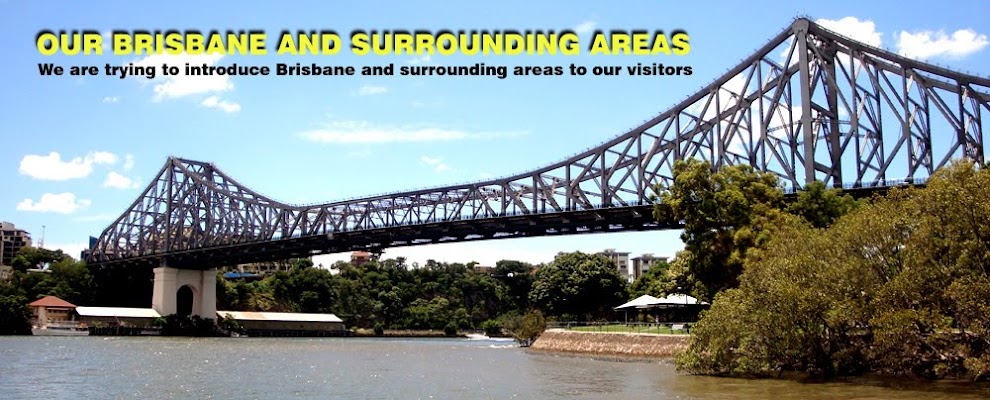Some of you may have heard that the city of Brisbane was in trouble a couple of years ago when the main dams dropped to just on 15% capacity and there was talk that Brisbane could run out of water within a couple of years. Government frantically built a De-Salination plant and sank pipelines, here, there and everywhere to be prepared when this is happening. But, mother nature has once again come to the party and dropped a lot of rain in the last few months, so that now the dams are 98% full and rising.
So, we thought we'd go and have a look at the main dam, Lake Wavenhoe. And it was a beautiful sight! We had a pic-nic while we were there, with friends who live in Esk on the other side of the dam.
Lake Wavenhoe is 98% full

Driving over the dam wall

The Spill way from Bremer river

The dam wall from the lower side
Wivenhoe Dam (Lake Wivenhoe) is built on the Brisbane River, approximately 80 kilometres from Brisbane. It was designed by the Water Resources Commission and built in 1984. Its primary function is to provide a safe and reliable water supply to the south-east Queensland region.
- Wivenhoe Dam consists of an earth and rock embankment 2.3 kilometres long and 50 metres high, measured from the lowest foundation to the crest, with a concrete spillway section on which five steel crest gates have been installed.
- The gates measure 12 metres wide and 16.6 metres high and are among the largest of their type in the world.
- The dam has a total storage capacity of 2.6 million megalitres. At full supply level it will hold 1.15 million megalitres, or about 2000 times the daily water consumption ofBrisbane.
- More than 200 separate properties were acquired to provide the 33,750 hectares of land required for the construction of the dam.
- The Brisbane Valley Highway was relocated to pass over the dam wall, while 65 kilometres of the road and a number of new bridges were required following construction of the dam.
- The construction of the dam involved the placement of around 4 million cubic metres of earth and rock fill, and around 140,000 cubic metres of concrete in the spillway section. Excavation of 2 million cubic metres of earth and rock was necessary to construct the spillway.
And for the technically-minded, here are some facts:
Key Facts
Name:
Wivenhoe Dam / Lake Wivenhoe
Water Course:
Brisbane River
Location:
Upstream from Fernvale
Catchment Area:
7,020km2
Full Supply Capacity:
1,165,238 ML
Current Capacity:
1,125,787 ML (96.6% full) at 01/04/2010
Flood Mitigation:
1,450,000 ML
Year Complete:
1984
Full Supply Waterline:
67m AHD (above sea level)
Type of Construction:
Zoned earth and rockfill embankment
Length of Dam Wall:
2,300m















Thanks for the tour. I would have enjoyed the picnic too! Beautiful dam and park. Very glad the rains came and did their job.
ReplyDeleteWell, I'll be dammed! What a gorgeous spot for an outing like a pic-nic!
ReplyDeleteWe had similar problems in South Florida some years when Lake Okeechobee was drying up...of course it wasn't long before the hurricanes came and flooded everything!
Thanks, Bill, for visiting Ocala DP!
I have never seen it so full.
ReplyDeleteBeautiful set of images of a very interesting place.
ReplyDeleteIts good to see that much water around. Pretty place.
ReplyDeleteThat looks like a beautiful area. Nice photos.
ReplyDeleteI'm glad Mother Nature has brought rain to your area. The dam looks like a very beautiful place for a picnic.
ReplyDeleteThanks for the photo of the dam. It must great to see it full again. I remember that when I was a kid there was a low level bridge around there that was always flooding. The countryside around Esk is lovely, so I'm sure you had an enjoyable day.
ReplyDeleteLove how awful your facts are.
ReplyDeleteIt is Wivenhoe. Not Wavenhoe and it is Brisbane river not Bremer river. Sheeesh
ReplyDeleteThank You and that i have a neat give: How Much Renovate House updating exterior of home
ReplyDelete